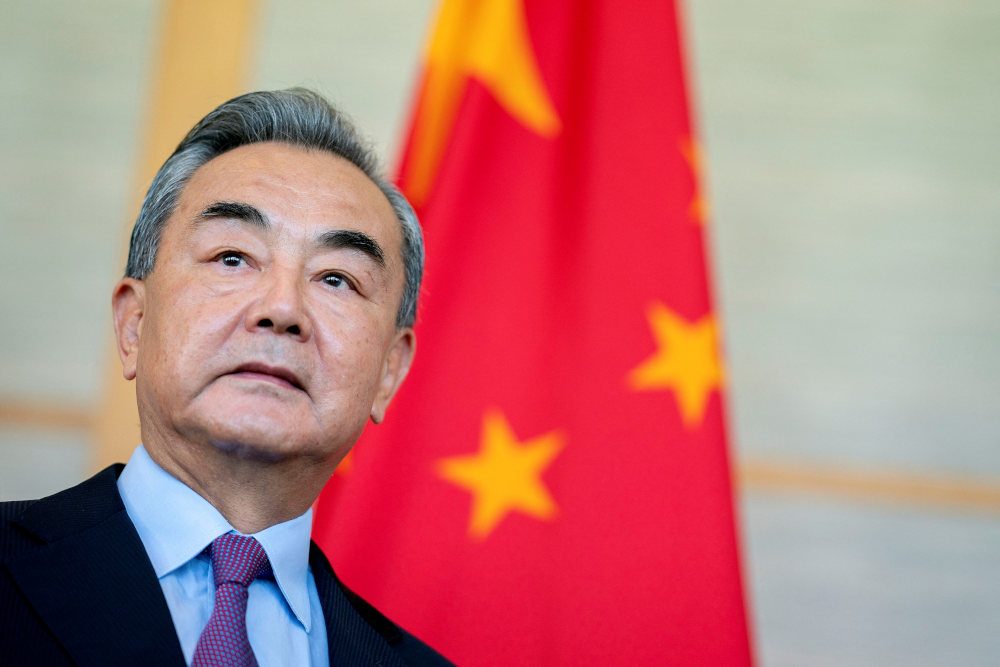SUMMARY
This is AI generated summarization, which may have errors. For context, always refer to the full article.

BEIJING, China – China’s foreign minister, Wang Yi, said maritime disputes should be resolved through talks and warned against “camp” confrontations, but stopped short of naming the United States, days before an expected meeting between the countries’ leaders.
The Philippines, Japan and the United States have complained about what they say is growing Chinese aggression in the South China Sea. Beijing says most of the region is part of its territory, a claim that is hotly disputed by several littoral nations.
Last month, China and the Philippines traded barbs over a collision in the South China Sea as Chinese vessels blocked the passage of Philippine ships. Beijing said the vessels were “trespassing” on Chinese territory when trying to send supplies to Philippine troops stationed on a disputed shoal, which lies in the Philippine exclusive economic zone.
The tense encounters between China and the Philippines at the contested shoal have led Japan to call for trilateral cooperation with the United States on helping Manila bolster its security capabilities.
“Historical maritime disputes should be resolved through friendly consultation between direct parties, and maritime camp confrontations and zero-sum games should be resisted,” Wang said at a symposium on maritime governance in Hainan on Tuesday, without identifying any nation.
Crisis communication mechanisms should also be improved, Wang said, without referring to the incidents.
China has long criticized what it labels as “cliques” among nations, especially countries that have no direct claims in disputes. Beijing has been especially critical of the US Indo-Pacific strategy, which identifies China as an aggressor in the region, including the South China Sea, undermining international maritime law including freedom of navigation.
Last year, at the same symposium, Wang said a “certain major country” created the Indo-Pacific strategy, put together exclusive “small circles”, and doubled down on “provocative” close-range maneuvers and muscle-flexing.
But in his remarks on Tuesday, Wang took a more dovish tone and avoided overt references to the United States, amid broader bilateral efforts to ease tensions and days ahead of an expected meeting between Chinese President Xi Jinping and US President Joe Biden on the sidelines of an upcoming Asia-Pacific Economic Cooperation (APEC) forum.
China will continue to fulfill its obligations under international maritime laws, including the United Nations Convention on the Law of the Sea (UNCLOS), Wang said, again without referring to Washington.
A year earlier, he had criticized the “certain major country” for refusing to join UNCLOS, of which more than 160 countries are parties. The United States, while accepting the UNCLOS, has yet to ratify it. – Rappler.com
Add a comment
How does this make you feel?













![[Just Saying] SONA 2024: Some disturbing points](https://www.rappler.com/tachyon/2024/07/TL-marcos-sona-points-july-23-2024.jpg?resize=257%2C257&crop=335px%2C0px%2C720px%2C720px)

There are no comments yet. Add your comment to start the conversation.